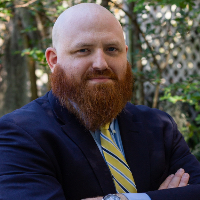 New Roads Felony Lawyers, Louisiana
New Roads Felony Lawyers, Louisiana
Sponsored Law Firm
-
 x
x

Click For More Info:
-
Babcock Trial Lawyers
10101 Siegen Ln #3-C Baton Rouge, LA 70810» view mapCriminal Defense We Want Your Injury Claim PAID NOW!
At Babcock Trial Lawyers, we work for our clients, maintaining our reputation of excellence as criminal defense & personal injury lawyers in Baton Rouge.
225-500-5000
Not enough matches for New Roads Felony lawyer.
Below are all New Roads Criminal lawyers.
Sponsored Lawyers
1-10 of 26 matches
Criminal, Felony, Ethics, RICO Act, Divorce & Family Law
Jacob Longman is currently the Managing Partner of Longman Jakuback, APLC. A botique litigation firm, Longman Jakuback specializes in complex and criminal litigation at the trial and appellate level in both state and federal court. Jacob spent time in both law enforcement and the military before attending law school. Before graduating from the Paul M. Hebert Law Center, he was President of the Student Chapter of the Louisiana Association of Criminal Defense lawyers, worked as a student investigator for the East Baton Rouge Public Defender's Office and was a judicial intern at the 19th Judicial District Courthouse. He career has taken him across the state of Louisiana. Several of these have set legal precedents in the field of criminal law. These include State v. Crockett, State v. McQuarter, State v. DiGeralmo, and State v. Steele. He is currently the President-Elect of the Louisiana Associate of Criminal Defense Lawyers.
(more)Criminal, Personal Injury, Wrongful Death, Litigation
The managing partner of the largest criminal defense intensive law firm in Louisiana, Manasseh has represented more than 12,000 clients over a twenty-five year career. In addition to the prolific criminal practice, Manasseh oversees a litigation practice that includes personal injury, wrongful death and environmental law. His practice includes the full array of practice experience include city, state and federal courts; motion, trial, appellate and post-conviction practice; mediation, consultation and counseling. In 1990, Manasseh became one of the youngest attorneys to successfully argue before the United States Supreme Court in Foucha v. Louisiana.
(more)


 Stephen Babcock Baton Rouge, LA
Stephen Babcock Baton Rouge, LA Practice AreasExpertise
Practice AreasExpertise


